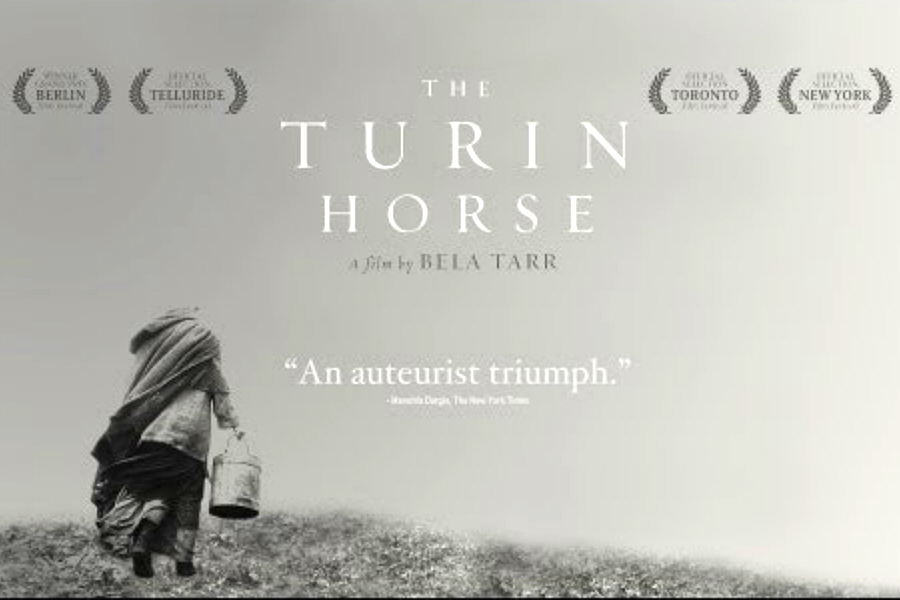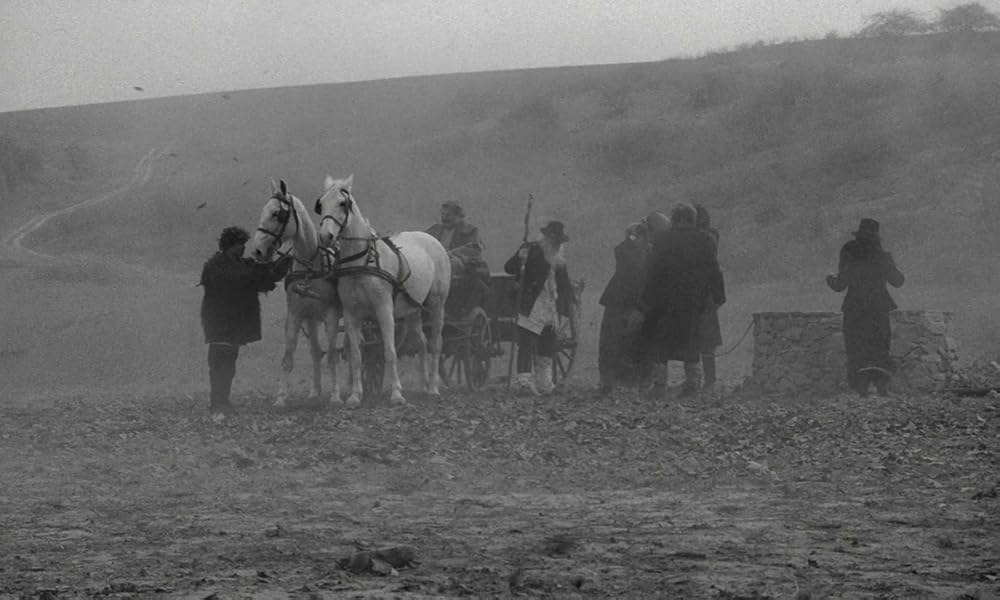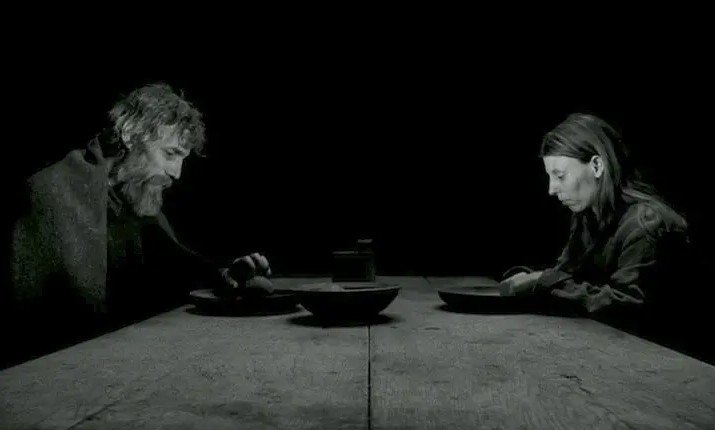The Turin Horse (2011)

The Turin Horse (2011) is a Hungarian historical drama film directed by Béla Tarr and Ágnes Hranitzky, featuring János Derzsi, Erika Bók, and Mihály Kormos in key roles. The film stands out for its minimalist style, slow pacing, and philosophical themes. It is a stark, bleak portrayal of human existence, revolving around the lives of an elderly man and his daughter, whose existence is marked by routine, hardship, and an overwhelming sense of despair.
Set in a remote, desolate landscape, The Turin Horse follows a simple, repetitive narrative. The story centers on the daily lives of the farmer, who is deeply tied to the land, and his daughter, as they face the struggles of survival in a harsh, unforgiving environment. Their life is bleak, marked by poverty and an overwhelming sense of isolation. The film opens with the iconic story of a man, possibly Friedrich Nietzsche, witnessing the beating of a horse in Turin, which allegedly led to Nietzsche’s mental breakdown, a reference that serves as an allegory for the tragic lives of the central characters.
The film is often described as a reflection on the futility and cyclical nature of human life. The father and daughter perform the same tasks every day — they struggle to feed themselves, battle against the harsh elements, and seem unable to escape their bleak reality. The Turin Horse depicts an unrelenting sense of hopelessness as the characters’ physical and emotional exhaustion becomes more apparent with each passing day. The repetitive nature of the film underscores the inescapable monotony of their lives and evokes a sense of nihilism.
One of the film’s most striking features is its slow pace, drawn-out scenes, and minimal dialogue, which immerse the viewer in the oppressive atmosphere. The long takes and the almost entirely static camera focus the attention on the characters’ actions and surroundings, making the viewer feel the weight of the world they inhabit. The visual style, with its sparse use of color and the dark, grayish tones, enhances the somber mood of the story. This deliberate pacing creates a meditative space for reflection on the themes of suffering, existential crisis, and the human condition.

The collaboration between Béla Tarr and his longtime co-writer László Krasznahorkai is central to the film’s success. The screenplay, based on Krasznahorkai’s writings, offers a profound exploration of existential themes and the darker aspects of life. The film delves into questions of meaning, the inevitability of death, and the relentless passage of time. It portrays a world that seems devoid of hope, where every effort to escape or improve the situation is met with failure. Through the simple lives of the father and daughter, The Turin Horse presents a philosophical meditation on the nature of existence and the inherent suffering of humanity.

In conclusion, The Turin Horse is a powerful, thought-provoking film that explores profound existential themes through its stark, minimalist storytelling. The collaboration between Béla Tarr and László Krasznahorkai produces a work of deep philosophical significance, one that forces the audience to confront the inevitable darkness of life. With its slow, deliberate pacing, bleak atmosphere, and haunting performances, The Turin Horse is a film that lingers long after the credits roll, leaving a lasting impression of life’s inherent struggles and the passing of time.











